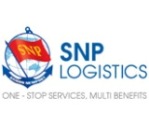APL, the container shipping arm of Singapore-based transportation giant NOL, has unveiled an air quality improvement programme for its California operations.
To produce a desirable result, APL is teaming up with the California Air Resources Board (CARB), the US Environmental Protection Agency (EPA), the ports of Los Angeles and Long Beach, and four California air quality management boards, to test innovative fuel emulsification technology that could reduce emissions of nitrogen oxides from vessels by up to 20 per cent.
APL and its partners will also test marine engine technologies - including slide valves and a next-generation lubricating system - that could further cut down pollution from the exhaust fumes of ocean-going container ships.
In addition, APL said in a statement that it has begun using cleaner-burning, low-sulphur diesel fuel in the auxiliary engines of its 23 vessels that regularly call at the ports of Los Angeles and Oakland.
"As leaders in this industry, we have a responsibility to address the impact we have on the environment," said John Bowe, president of APL in the Americas. "We're working on many fronts to lessen that impact, and we're grateful for the support of CARB, the EPA, the ports and air quality management agencies."
APL's approach to cleaner air includes a three-year demonstration project aboard the container ship APL Singapore that will be monitored by the University of California, Riverside, starting from February next year.
The project will test two technologies that are being installed on the vessel, including water-in-fuel emulsification in the main engine to reduce emissions of nitrogen oxides and particulate matter and slide valves in the engine's cylinders to prevent fuel leakages.
APL is also deploying a lubricating system that can cut cylinder oil consumption in marine engines by 20 to 50 per cent.
If the results from the onboard tests prove positive, APL said it would most likely retrofit other ships with the environmentally friendly technology.
The world's largest marine engine manufacturer, MAN Diesel, which built APL Singapore's main engine, said it would consider making fuel emulsification a standard feature in future production if tests were successful.
"The shipping industry is exploring a number of innovative approaches to curb vessel emissions and reduce the impact on the environment," said EPA regional administrator Wayne Nastri. "Our goal for this project is to prove that it can be an effective means of addressing emissions from large ships."
Seven partners have contributed a total of US$1.3 million to finance the fuel emulsification demonstration project aboard the APL Singapore, the release added.
Asian Shipper News













